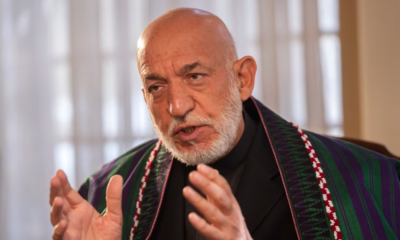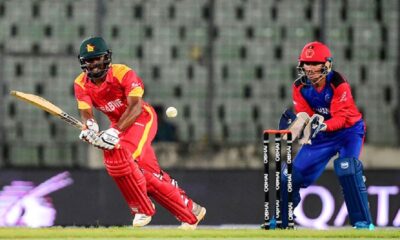Regional
Iraqi fighters head to Syria to battle rebels but Lebanon’s Hezbollah stays out
Iran’s constellation of allied regional militia groups, aided by Russian air power, has been integral to the success of pro-government forces in subduing rebels in Syria who rose up against President Bashar al-Assad in 2011
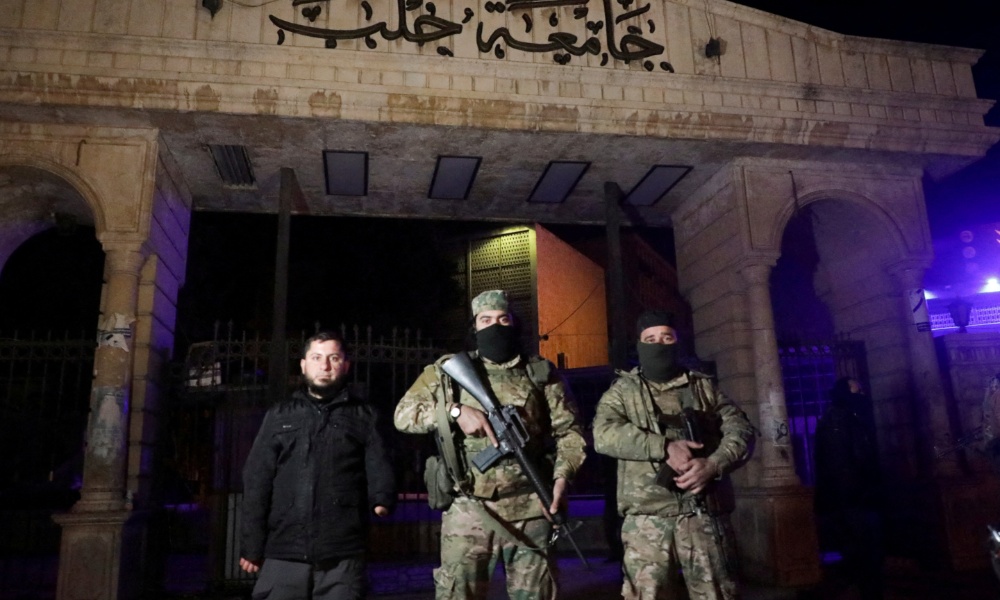
Hundreds of Iran-backed Iraqi fighters crossed into Syria on Monday to help the government fight rebels who seized Aleppo last week, but Lebanon's Hezbollah has no plans for now to join them, according to sources.
Iran's constellation of allied regional militia groups, aided by Russian air power, has been integral to the success of pro-government forces in subduing rebels in Syria who rose up against President Bashar al-Assad in 2011, Reuters reported.
But that alliance faces a new test after last week's lightning advance by rebels in northwest Syria, with Russia focused on war in Ukraine and Hezbollah's leadership decimated by a war with Israel that ended in a ceasefire last week.
The rebel storm of Aleppo is the biggest success of anti-Assad fighters for years.
Government forces had held complete control of Aleppo since capturing what was then Syria's largest city in a siege in 2016, one of the major turning points of a war that has killed hundreds of thousands of people.
The head of Syria's main opposition group abroad, Hadi al-Bahra, told Reuters the rebels were able to seize the city so quickly because Hezbollah and other Iran-backed groups were distracted by their conflict with Israel.
Preparations had been made since last year for an assault on Aleppo, but it was held up by the war in Gaza, he said.
Syria's civil war had been frozen since 2020, with Assad in control of most territory and all major cities.
Rebels still held an enclave in the northwest, Turkey-backed forces held a strip along the northern border and U.S.-backed, Kurdish-led forces controlled a pocket in the northeast.
Any prolonged escalation in Syria risks further destabilising a region roiled by the conflicts in Gaza and Lebanon, with millions of Syrians already displaced and with regional and global powers backing rival forces in the country, Reuters reported.
Iraqi and Syrian sources confirmed the deployment of more Iran-backed Iraqi fighters to Syria. Iran's Foreign Minister said Tehran "will provide any support needed" and that "resistance groups" would come to Assad's aid.
Russia, whose 2015 entry into the conflict turned the military balance decisively in Assad's favour, continues to support him and is analysing the situation on the ground, the Kremlin said.
On Sunday Moscow dismissed the general in charge of its forces in Syria, Russian war bloggers reported.
The Syrian government said Syrian and Russian air forces were striking rebel-held positions in the countryside east of Aleppo city.
The White Helmets rescue organisation and residents of rebel-held areas in the north said warplanes had hit residential areas of Aleppo city and a displaced people's camp in Idlib province where seven people were killed, including five children.
The Syrian government said it had killed hundreds of rebel fighters in recent days, which Reuters could not independently confirm.
The rebels fighting in Aleppo, Idlib and Hama provinces in northwest Syria include mainstream groups backed by Turkey as well as the Islamist Hayat Tahrir al-Sham, the former al-Qaeda affiliate in Syria.
A Turkish official told Reuters Turkey had not given any permission for the rebel offensive, and Hayat Tahrir al-Sham took no instructions from Turkey.
The Turkish and Iranian foreign ministers discussed the fighting in Syria on Monday.
Turkish Foreign Minister Hakan Fidan said rebel advances could not be explained by foreign intervention and urged the Syrian opposition to compromise.
A spokesperson for Israel's military said it would not let Iran exploit the Syria conflict to transfer weapons to Hezbollah.
Regional
Syrian rebels advance close to Hama city, piling pressure on Assad and his allies
Rebels and the Syrian Observatory for Human Rights war monitor said insurgents had captured villages including Maar Shahur a few miles north of the city.
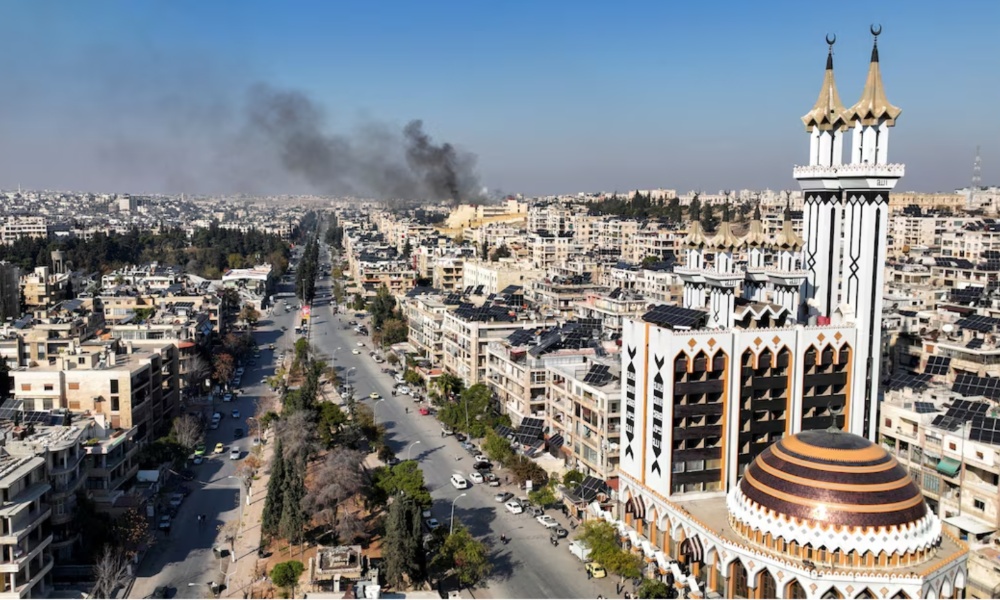
Syrian rebels advancing against government forces pushed close on Tuesday to the major city of Hama, rebels and a war monitor said, after their sudden capture of Aleppo last week rocked President Bashar al-Assad.
Rebels and the Syrian Observatory for Human Rights war monitor said insurgents had captured villages including Maar Shahur a few miles north of the city. Reuters reported that reinforcements were arriving in the area.
An attack on Hama would ramp up pressure on Assad, whose Russian and Iranian allies have scrambled to support him against a reviving rebellion.
The city has remained in government hands since civil war erupted in 2011.
Iranian Foreign Minister Abbas Araqchi said in an Arabic-language interview that Tehran would consider sending troops to Syria if Damascus asked, and Russian President Vladimir Putin urged an end to "terrorist aggression" in Syria, RIA reported.
Iraq Prime Minister Shia al-Sudani said Baghdad would not be "a mere spectator" in Syria and blamed Israeli military strikes on the Syrian government for the rebel advance, his office said.
Compounding Assad's problems, fighters from a U.S.-backed, Kurdish-led coalition battled government forces in the northeast, both sides said, opening a new front along a vital supply route.
Last week's rebel seizure of Aleppo - Syria's largest city before the war - marked the biggest offensive for years.
The front lines of the conflict have been frozen since 2020 after Assad clawed back most of the country from rebels, thanks to help from Russian air power and military help from Iran and its network of regional Shi'ite militia groups.
Now, however, Russia has been concentrating on the war in Ukraine, while Israeli strikes over the past three months have decimated the leadership of Hezbollah, the strongest Iran-backed force fighting in Syria.
On Monday, hundreds of Iran-backed Iraqi militia fighters entered Syria to back up Syrian government forces, Iraqi and Syrian sources said, but Hezbollah does not plan to send forces now.
A rebel source said Iran-backed militia fighters were among the forces they were battling outside Hama.
In recent days, Russian and Syrian government warplanes have intensified airstrikes against rebels, both sides have said. Rescue workers have reported deadly strikes on hospitals in Aleppo and Idlib. - Reuters
Regional
Death toll in Pakistan sectarian clashes now over 130, official says
District administration official Wajid Hussain said 133 people had been killed in the attacks in the last week and a half.
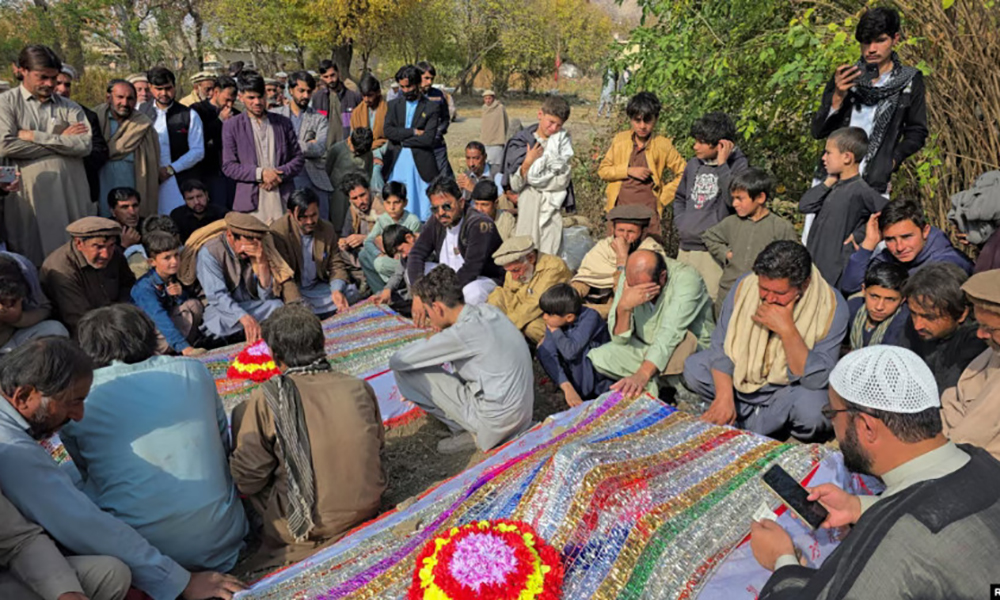
Deadly sectarian clashes have continued in Pakistan's north-western Kurram district in spite of a tentative ceasefire struck late last week, local officials said, with the death toll now over 130 as authorities try to broker a solution, Reuters reported.
Kurram, near the border with Afghanistan, has been a flashpoint for sectarian tensions for decades. They spilled over into a fresh wave of attacks last month when clashes between Sunnis and Shias left dozens dead.
District administration official Wajid Hussain said 133 people had been killed in the attacks in the last week and a half.
"The district administration and other relevant authorities have initiated efforts to stop fighting between the two communities but there is no breakthrough yet," he said.
A Pakistani government team mediated a seven-day ceasefire deal between the rival groups last Sunday. Armed Shi'ite and Sunni Muslims have engaged in tribal and sectarian rivalry for decades over land and other local disputes in Kurram, read the report.
Provincial authorities put the death toll at 97, with 43 people killed in the initial attack when gunmen opened fire on mostly Shia drivers and the rest killed in retaliatory clashes.
Chief Minister for Khyber Pakhtunkhwa province Ali Amin Khan Gandapur visited the area on Saturday for a large gathering of tribal elders and leaders.
"Anyone who takes up arms will be treated as a terrorist, and their fate will be that of a terrorist," said Gandapur according to a statement from his office late on Saturday, adding that security forces would remain in the area.
Residents and officials said the main highway connecting Kurram's main city of Parachinar to the provincial capital Peshawar was blocked, which had created challenges transferring wounded people to hospitals.
"Our medical team is working around the clock to perform surgeries due to the challenges in referring patients to larger hospitals in Peshawar and elsewhere," said Dr Syed Mir Hassan, from Parachinar's district hospital.
He added that they were currently treating around 100 wounded patients and had received 50 bodies during the violence.
Regional
Gautam Adani breaks silence on US bribery indictment
Adani Group has denied the allegations, describing them as “baseless” and vowing to seek “all possible legal recourse”.
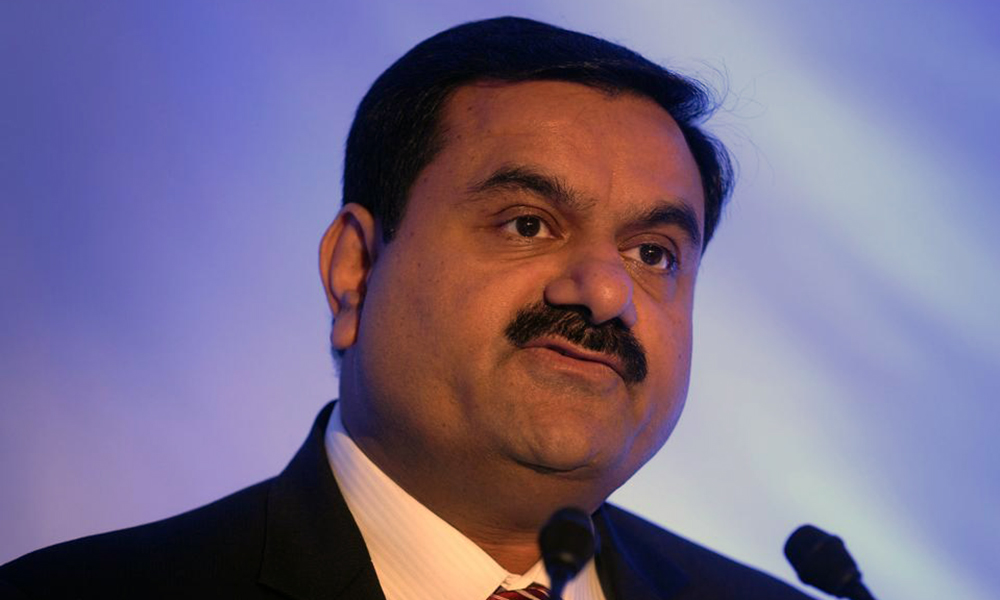
Adani Group founder Gautam Adani responded for the first time on Saturday to allegations by U.S. authorities that he was part of a $265 million bribery scheme, saying that his ports-to-power conglomerate was committed to world class regulatory compliance, Reuters reported.
The indictment is the second major crisis to hit Adani in just two years, sending shockwaves across India and beyond. One Indian state is reviewing a power deal with the group, France's TotalEnergies, decided to pause its investments and political rows over Adani have disrupted India's parliament.
"Less than two weeks back, we faced a set of allegations from the U.S. about compliance practices at Adani Green Energy. This is not the first time we have faced such challenges," Adani said in a speech at an awards ceremony.
U.S. authorities have accused Gautam Adani, his nephew and executive director Sagar Adani and managing director of Adani Green (ADNA.NS), opens new tab, Vneet S. Jaain, of being part of a scheme to pay bribes to secure Indian power supply contracts, and misleading U.S. investors during fundraisings in the country, read the report.
Adani Group has denied the allegations, describing them as "baseless" and vowing to seek "all possible legal recourse".
"What I can tell you is that every attack makes us stronger and every obstacle becomes a stepping stone for a more resilient Adani Group," Adani said in the northern Indian city of Jaipur.
"In today's world, negativity spreads faster than facts, and as we work through the legal process, I want to re-confirm our absolute commitment to world class regulatory compliance," he added, without giving further details.
Adani Group's finance chief on Friday rejected the allegations, while the Indian government said it had not received any U.S. request regarding the case.
At one point, Adani Group's listed companies saw as much as $34 billion wiped off their combined market value, but the stocks have recovered ground as some partners and investors have rallied behind the conglomerate.
-
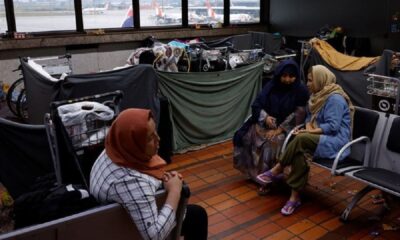
 Latest News4 days ago
Latest News4 days agoOver 12,000 Afghans entered Brazil with humanitarian visas in last three years: UNHCR
-
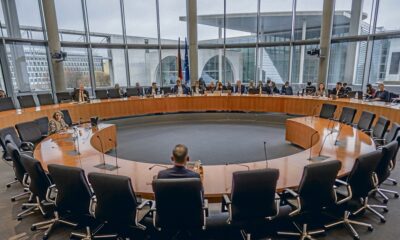
 Latest News4 days ago
Latest News4 days agoFormer German FM blames lack of US coordination for chaotic withdrawal from Afghanistan
-

 Business3 days ago
Business3 days agoTrump warns BRICS nations against replacing US dollar
-
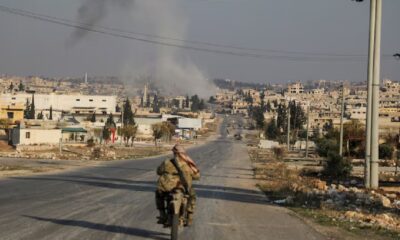
 World4 days ago
World4 days agoSyria rebels say they reached Aleppo city in surprise sweep
-
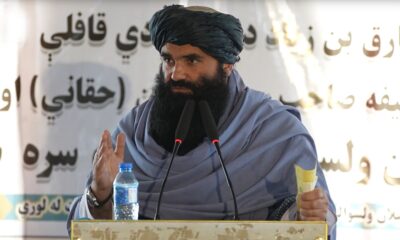
 Latest News4 days ago
Latest News4 days agoActing interior minister calls Afghans ‘united people’
-
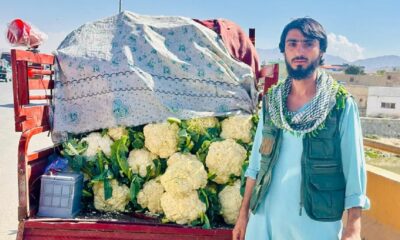
 Latest News3 days ago
Latest News3 days agoMost families borrow money to buy food in Afghanistan: WFP
-
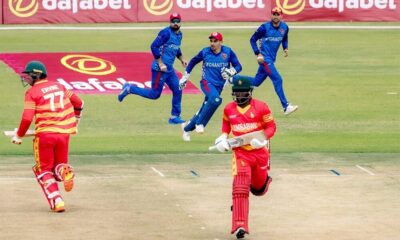
 Sport3 days ago
Sport3 days agoAfghanistan announce squads for white-ball tour of Zimbabwe
-
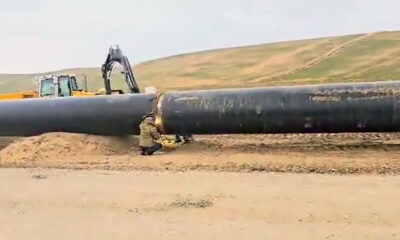
 Business2 days ago
Business2 days agoWork on TAPI project finally kicks off in Afghanistan




